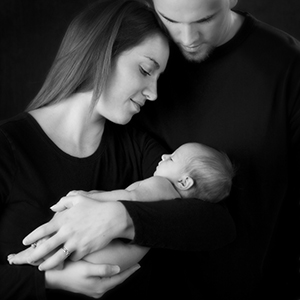I was re-reading Andrew Murray’s Abide in Christ. I highly recommend it. What I read this morning had to do with Jesus being our righteousness. Murray pointed out that as we begin with Christ and begin to understand righteousness, we think of it as something we have to put on regularly. When we begin to really grasp not only what He has done for us, but that He is our righteousness, it changes our perspective. We no longer look at it as a robe in which we clothe ourselves, or a way of life or behavior. Instead, we realize that the Lord Himself is our righteousness. We learn that because we are His, and He is ours, His righteousness is ours as well. That makes us want to abide in Him all the more.
Murray wrote: “The life and the righteousness are inseparably linked, and the believer becomes more conscious than before of a righteous nature planted within him.” As I read it, I became aware that we often fall short of this realization. Why? We are busy and distracted – in our personal lives, by our culture, all the sensory stimuli available with media, computers, games, activities, and even in the events and programs that make up most of our Christian experience. We think we are righteous because we “put on the robe of righteousness.” We never quite really know that we are righteous because we abide in Him as our righteousness. We love the world; we love church; we love being religious, but we don’t have time to love Him.
A friend stopped by yesterday. She was telling us about her daughter. Her daughter is adopted, and recently met her birth mother. It turned out to be a wonderful experience for them all. In telling us this story, she gave us some of the background about her daughter. Unable to have children herself, our friend and her husband met an unwed mother who was considering placing her baby for adoption. They got to know her, became somewhat involved with her life, and adopted the baby girl right after her birth. When she was about 8, a girl at school told her that her real mommy didn’t love her and had given her away. That evening she talked with her adopted mommy who pointed out that her birth mother had loved her so much she wanted her to have both a mommy and daddy who would love her and provide for her in ways she could not do. The next day at school, she told her classmate that she was actually the lucky one because she had two mommies who loved her very much, and she was sorry her classmate only had one mommy.
So many people think that having a baby will give them someone to love, or someone to love them. Some fear that if they give the child away, even to a loving couple who would be eager to adopt, that they would be rejecting the baby or shirking their responsibility. I was struck by the depth of love this birth mother showed. I was struck by the deep love our friend has for her daughter – there is obvious joy and delight. In addition, I was struck by the healing and the confidence the daughter found when she came to know of her birth mother’s love. And the healing came full circle. When they met, the birth mother had feared that her daughter might hate her for “giving her away.” Instead, all those years of wondering and worrying were erased as her daughter thanked her for loving her so much.
I don’t know if this is “the best” illustration for the point I want to make, but it evoked in me the same emotion I felt as I read Murray’s challenge to realize how God loves us and provides for our righteousness. If we could but understand the depth of the love of God for us, we would find liberty and strength for life. We are called to abide in Him. Too often we love the idea of loving Him. We love the idea of being a Christian, of doing religious, or even “righteous” things. We don’t get around to actually loving Him, much less abiding in Him.
God does not just make demands on us. His “standard” is not a goal we are commanded to attain and then left struggling to fulfill. He took on flesh to bring holiness into the human experience. He died to open the veil, through the torn veil of His own flesh, and make away for us to abide in His presence. He rose again to become executor of His own will, and to live within us as our righteousness, that we might become the righteousness of God in Him. Whatever He commands, He enables the willing follower to do. His command is His promise – He is at work both to will and to work for His good pleasure. It is by His doing you are in Christ Jesus, who was made to us the wisdom from God, and righteousness and sanctification and redemption.
What keeps you from abiding in Christ? What are your distractions? What other illustrations can you share of lives that have been made stronger through sacrificial love and/or a grateful heart?




